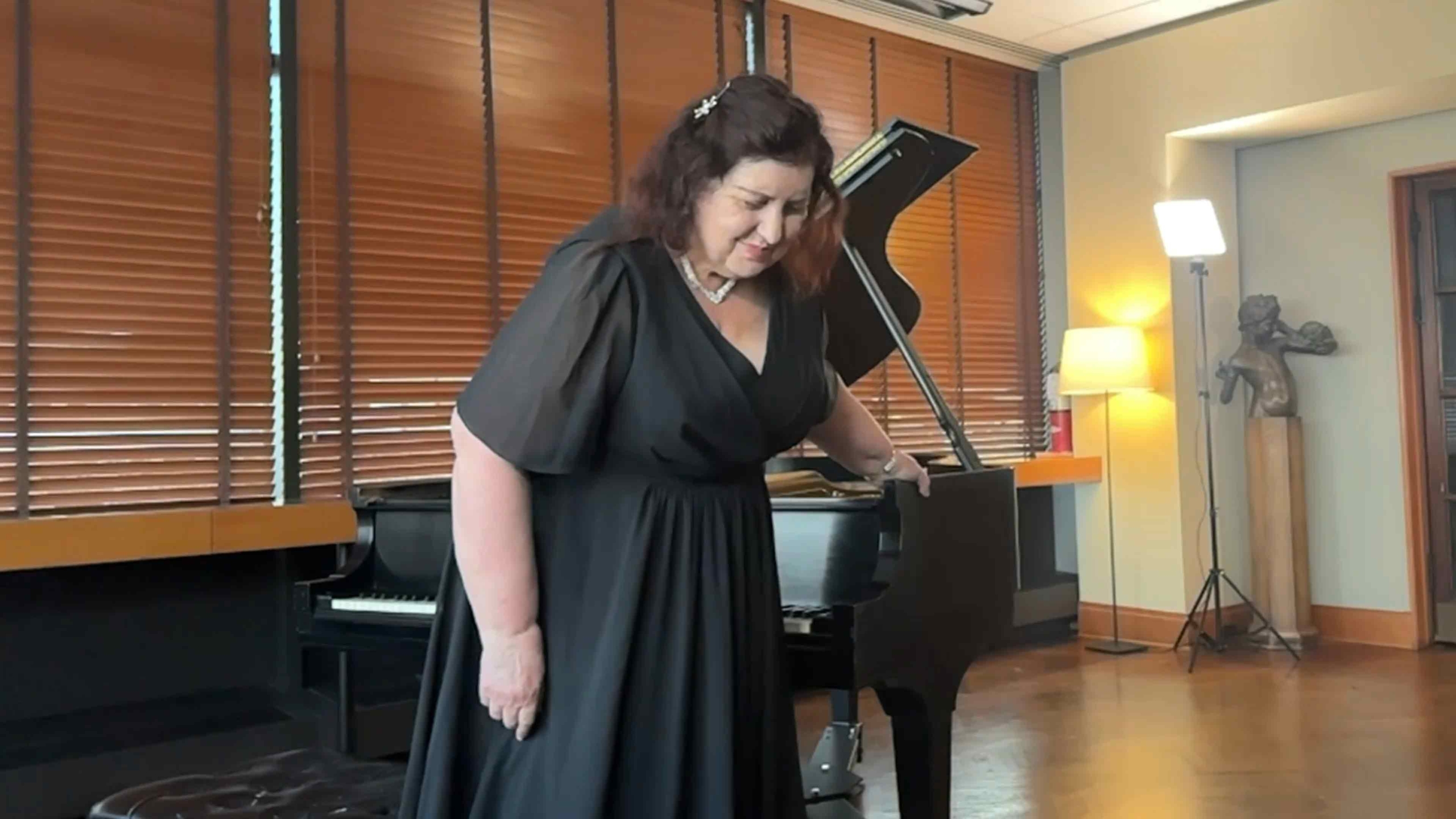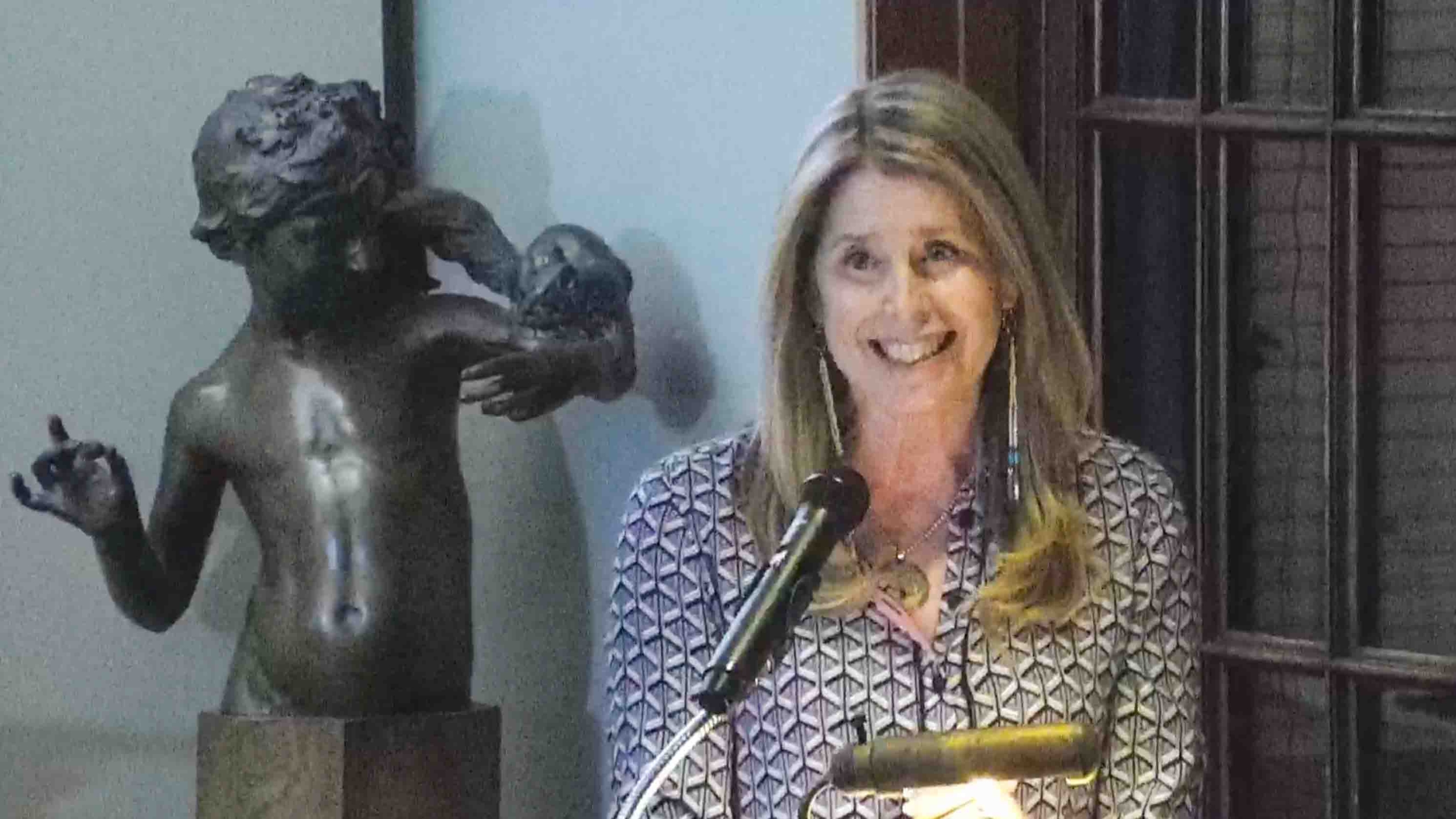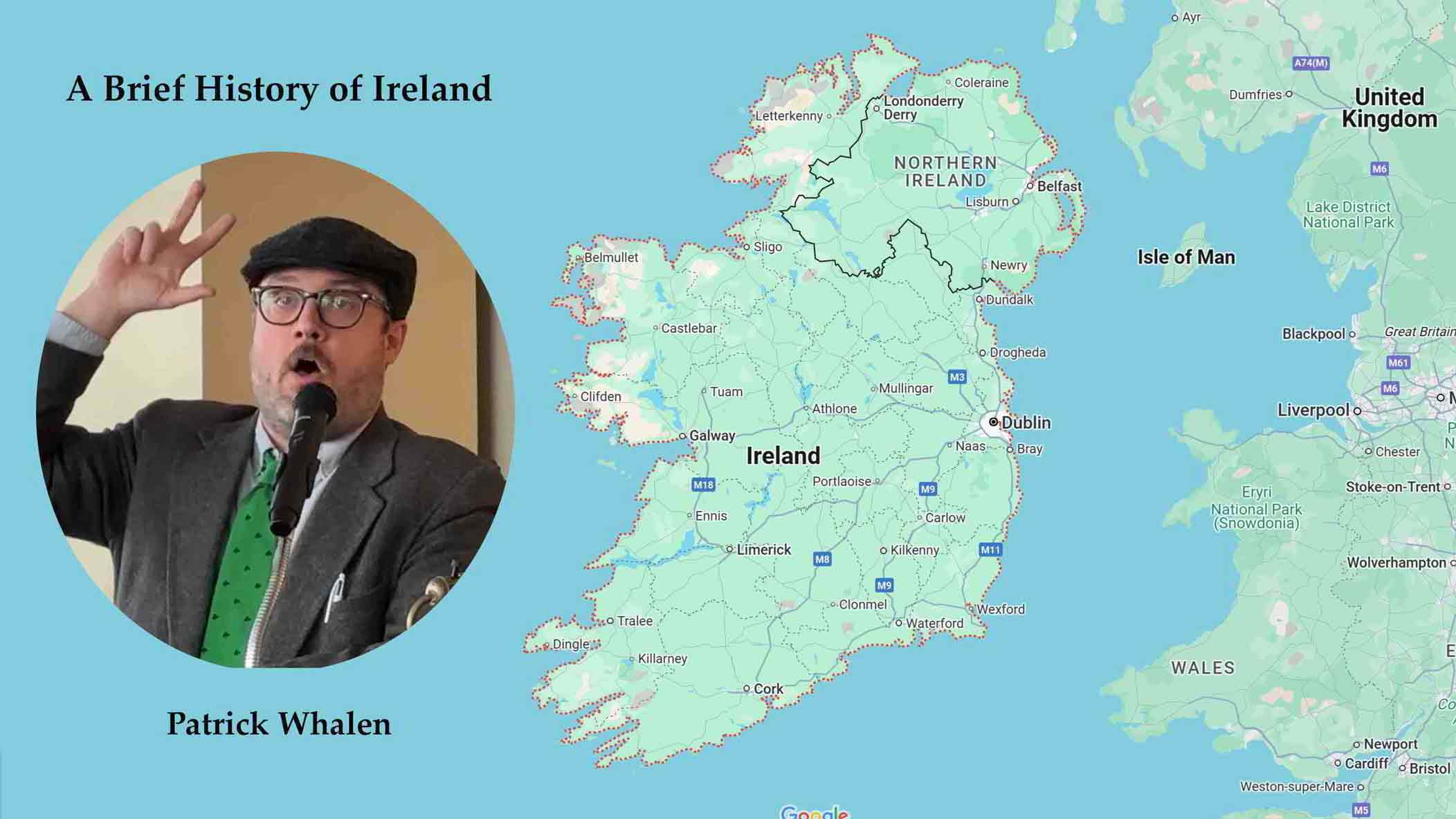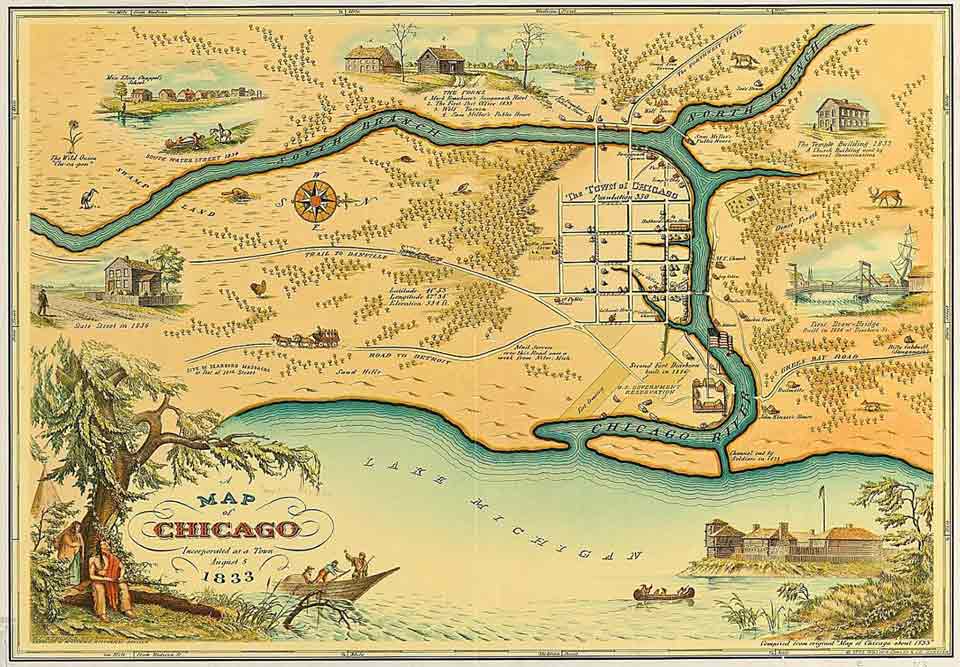The Players
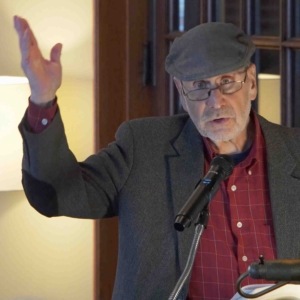
Master of Ceremonies
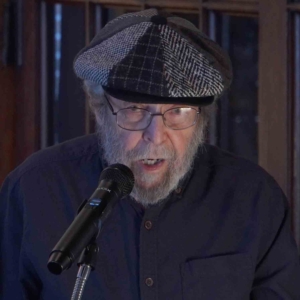
Howard Raik, Lestrygonians
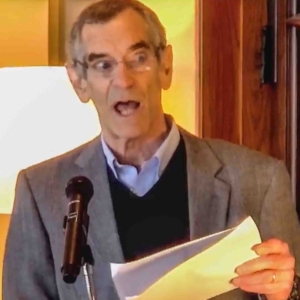
Joshua Seeger, Telemachus
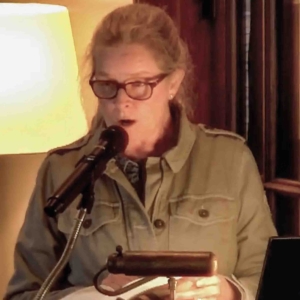
Liz Baskin, Nausicaa
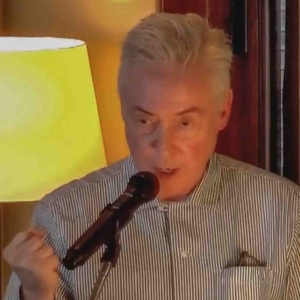
Jonathan Baskin, Calypso
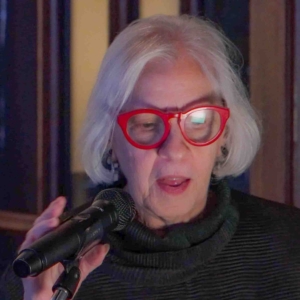
Joan Pantsios, Penelope1
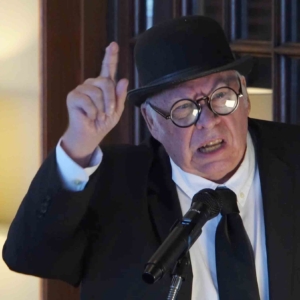
Robert Emmett Reidy, Hades
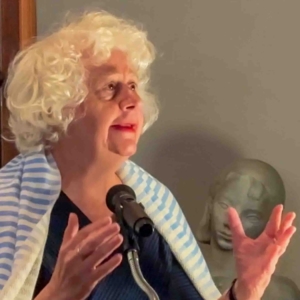
Eve Moran, Penelope 2
James Joyce, Ulysses & Bloomsday
Editor’s Note: In a longtime tradition at The Cliff Dwellers, each year when June 16th rolls around, it’s time to round up Members for Bloomsday, an evening of readings from Irish novelist James Joyce’s famous work Ulysses. Though widely regarded a masterpiece, and a breakthrough that dramatically expanded the stylistic possibilities for the novel, I have always avoided reading Ulysses. I’d gotten the impression that if reading the book wasn’t as bad as contracting the plague, it was certainly much worse than nursing a bad hangover. As a result, while I’ve been a Member of The Cliff Dwellers for over a quarter of a century, it wasn’t until this year that I got up the courage to attend the Club’s regular celebration of June 16, 1904. That was the day all of the action in Ulysses took place. It was on that day that James Joyce recorded the meanderings in Dublin of one Leopold Bloom, the Ulysses protagonist. Hence, the term Bloomsday.
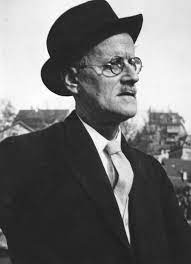
James Joyce
Fearing ill-prepared for my first Bloomsday, but far too lazy to actually read Ulysses, I thought I’d get some mileage out of my subscription to Encyclopaedia Britannica online and read up on Joyce and his masterwork. I discovered the novel is written as a structural equivalent to Homer’s epic poem, The Odyssey. The book has counterparts to major events of Homer’s poetic narrative of Ulysses making his way back to Greece after the Trojan War. Joyce’s Ulysses focuses on three characters. Steven Dedalus, is 22 years-old, has studied medicine and hopes to become a writer. Leopold Bloom is a Jew in Catholic Ireland who sells newspaper ads. And Bloom’s wife Molly is a woman who fully embraces her sexuality and not surprisingly exhibits a wandering eye. These three serve as counterparts to Homer’s Telemachus, Ulysses, and Penelope.
I’ll let the Britannica article on Joyce’s Ulysses explain why Bloom’s wanderings around Dublin on a single day hold such fascination over a century later:
“While the allusions to the ancient work that provides the scaffolding for Ulysses are occasionally illuminating, at other times they seem designed ironically to offset the often petty and sordid concerns that take up much of Stephen’s and Bloom’s time and continually distract them from their ambitions and aims. The book also conjures up a densely realized Dublin, full of details, many of which are—presumably deliberately—either wrong or at least questionable. But all this merely forms a backdrop to an exploration of the inner workings of the mind, which refuses to acquiesce in the neatness and certainties of classical philosophy. Although the main strength of Ulysses lies in its depth of character portrayal and its breadth of humour, the book is most famous for its use of a variant of the interior monologue known as the stream-of-consciousness technique. Joyce thereby sought to replicate the ways in which thought is often seemingly random and to illustrate that there is no possibility of a clear and straight way through life. By doing so, he opened up a whole new way of writing fiction that recognized that the moral rules by which we might try to govern our lives are constantly at the mercy of accident and chance encounter, as well as the byroads of the mind. Whether this is a statement of a specifically Irish condition or of some more universal predicament is throughout held in a delicate balance, not least because Bloom is Jewish, and is thus an outsider even—or perhaps especially—in the city and country he regards as home.”
The Program
The evening began with Joshua Seeger leading the Members in the singing of In Dublin’s Fair City, followed by seven readings from Joyce’s Ulysses performed by both Club Members and Joyce aficionado guests. Each of the chapters can be separately accessed in the video above by clicking on the chapter grid icon in the bottom right of the toolbar below the video. The different readings are each preceded by a short introduction from the Bloomsday Master of Ceremonies, Richard Reeder. Here are the selections from Ulysses and the talented speakers who brought them to life:
Telemachus (Episode 1) – Read by Joshua Seeger
Calypso (Episode 4) – Read by Jonathan Salem Baskin
Hades (Episode 6) – Read by Robert Emmett Reidy
Lestrygonians (Episode 8) – Read by Howard Raik
Nausicaa (Episode 13) – Read by Lis Baskin
Penelope (Episode 18) – Read by Joan Pantsios
Penelope (Episode 18) – Read by Eve Moran



